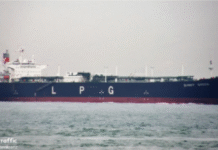
The International Monetary Fund is set to tighten the noose on the Bangladesh government over its dismal revenue mobilisation by making the remaining fund disbursement under a $4.7 billion loan conditional on meeting the tax collection target.
Until now, the tax collection target has not been a Quantitative Performance Criteria (QPC), mandatory benchmarks that the country must meet to unlock instalments under the loan programme.
The IMF staff mission on their last visit to Dhaka indicated that they would make tax collection target a QPC, The Daily Star has learnt from finance ministry officials involved with the negotiations.
The staff mission was in Dhaka last month to assess the country’s performance before the release of the fourth tranche of the loan.
“Bangladesh’s low tax-to-GDP ratio calls for urgent tax reforms to establish a fairer, more transparent system and sustainably increase revenue, focusing on rationalising exemptions, improving compliance and separating tax policy from administration,” said the staff mission on the conclusion of the visit.
The IMF’s emphasis on ramping up tax collection comes after recommendations for measures to boost revenue were not reflected in the budget for fiscal 2024-25.
The measures include scaling back corporate income tax exemptions and depletion allowances, raising previously reduced VAT rates on several products to the full 15 percent statutory rate, introducing an additional personal income tax bracket for high-income earners and increasing the tax rates on tobacco and select products.
As per the IMF’s estimates, the tax measures will bump up Bangladesh’s tax-to-GDP ratio by 0.5 percentage points this fiscal year.
Bangladesh failed to meet the tax revenue collection targets so far under the programme, which began in January 2023.
It is unlikely that the country would be able to meet the target set for this fiscal year either, given that tax collection in the first five months of the fiscal year was down 2.62 percent year-on-year to Tk 1,30,185 crore.
The tax revenue collection target set by the IMF for the first half of the fiscal year is Tk 2,15,120 crore. And for the entire fiscal year, the target is Tk 4,78,050 crore.
To achieve the full-year target, the government has to increase its tax revenue collection by 29 percent from fiscal 2023-24’s receipts.
The staff mission suggested the Bangladesh authorities take several prior actions, including a number of measures in the revenue sector to demonstrate its commitment to the programme, before it places the proposal for the release of the fourth tranche before the IMF board next month.
In this context, the NBR on Thursday went ahead with its bid to hike the value-added tax and supplementary duty on nearly 100 goods and services, an unusual policy measure in the middle of a fiscal year.
As a result, consumers will be required to pay up to 15 percent VAT or SD, up from as low as 5 percent previously, for the goods and services.
Such an unpopular decision was taken hurriedly at a time when the country’s overall inflation continuously hit double-digit, said Zahid Hussain, a former lead economist of the World Bank’s Dhaka office.
Inflation averaged 10.87 percent in the first half of fiscal 2024-25, shows data from the Bangladesh Bureau of Statistics.
“Most probably, the IMF will include the tax revenue collection target under QPC, which is why the government suddenly imposed the tax measures.”
It is a bad time for Bangladesh to see the tax revenue collection target be converted into a QPC, he said, adding that the sudden tax measures, including a hike in VAT and SD on several products, will definitely put more pressure on common people.
The government should negotiate with the IMF so that the multilateral lender does not include the tax revenue collection target under QPC at this moment, Hussain added.
Talks are ongoing to revise down the tax collection target given the July uprising, which hampered revenue mobilisation and economic activities, finance ministry officials said.
Under the existing loan programme for Bangladesh, the IMF has set three QPCs: minimum net international reserves (NIR) and ceilings for budget deficits and accumulation of external payments arrears.
Besides, there are four indicative targets (ITs), which, although not mandatory, carry considerable weight in assessing performance under the programme.
Tax collection is an IT for Bangladesh under the programme so far.
Daily Star









